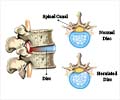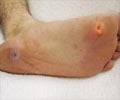Low back pain is a major health burden globally; a consequence of negligence and misinformation, and many current treatments such as opioids, injections, and surgery are useless, unnecessary and harmful.

‘This research reports that low back pain is a major health problem in the world and the treatments that are currently available are not necessary and could even be harmful.’





According to three papers in today's Lancet, from an international team of experts led by Melbourne, Australia's Monash University researcher, Professor Rachelle Buchbinder, the burden from low back pain has reached a tipping point where the condition is growing rapidly, is poorly understood and is being mismanaged medically - at cost both to the patient and to the healthcare system. Low- and middle- income countries are already emulating the low-value care that is endemic in high-income countries. The international team behind the series come from Australia, the UK, the US, Denmark, The Netherlands, Canada, Switzerland, Finland, Sweden, Brazil, South Africa and Germany.
Two of the three papers outline the breadth and impact of low back pain globally, how medical care is making the problem worse in both developed and developing countries, and promising solutions that need testing. The final paper in the series, by lead author Professor Buchbinder, is a Worldwide Urgent Global Call to Action.
The Call to Action seeks:
- Coordinated inter/national leadership to drive transformational change across health and social services and occupational settings to stop fragmented and outdated models of care
- Development of evidence-based medical responses to low back pain emphasizing the concept of 'positive health' - the ability to adapt and self-manage in the face of social, physical and emotional challenges
- Avoidance of what the authors call harmful and useless medical treatments through the adoption of a similar framework to drug regulation - i.e. only include them in public reimbursement packages if proven safe, effective and cost-effective. "Across the globe (there is) inappropriately high use of imaging, rest, opioids, spinal injections and surgery. Doing more of the same will not reduce low back pain disability nor its long term consequences."
- Public health campaigns to address the widespread population and health professional misconceptions about the causes and prognosis of low back pain and the effectiveness of different treatments
- Funding to support intensified research efforts that test promising solutions to the problem of low-value care and address fundamental gaps in our understanding of how to prevent low back pain, and how best to manage low back pain in low- and middle-income countries.
Source-Eurekalert













